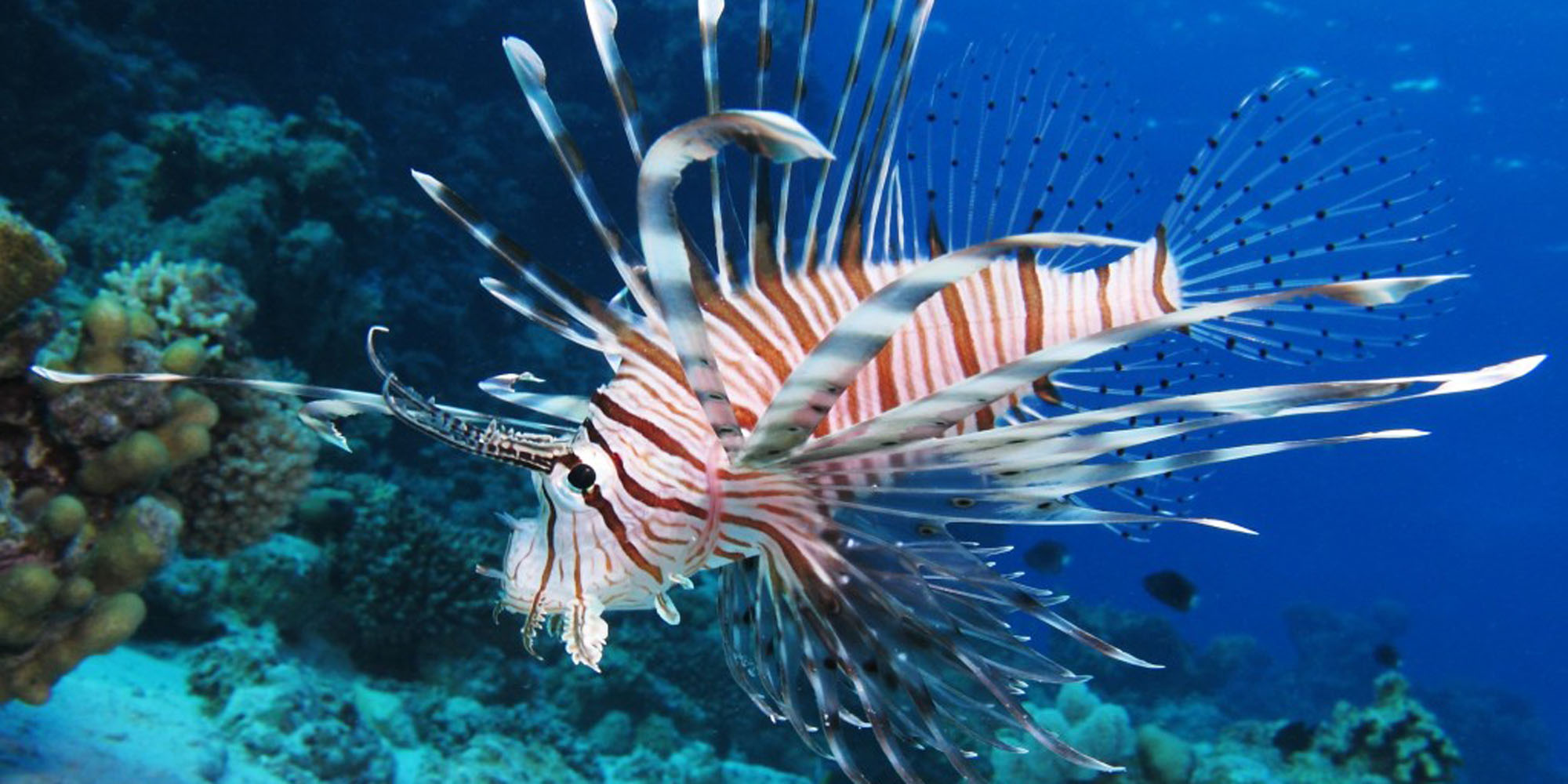Even if not a scientist, citizens can contribute to invasive species monitoring and management. In fact, according to a recent publication by MSC postdoctoral researcher Steven Scyphers, citizen observations might be more useful that those of the scientists themselves.
In the study, appearing in the journal Conservation Letters, Scyphers and colleagues examined the recent case of Indo-Pacific lionfish invading Northern Gulf of Mexico coastal waters. The authors compared traditional reef fish monitoring efforts to less traditional data including the observations of divers and spearfishers. They found that citizen observations documented lionfish 1-2 years earlier and more frequently than the more traditional monitoring efforts.
Scyphers, who is a member of the Grabowski Lab at the MSC, along with his team, also explored the willingness of spearfishers to help minimize impacts of the invasion by harvesting lionfish. They found that spearfishers who had encountered more lionfish while diving perceived them as more harmful to the habitat than less experienced divers and were also more likely to participate in harvesting initiatives. The authors also report that encouragement from scientists and managers was a far better motivator than the desire to harvest lionfish for personal consumption. Scyphers’ work highlights the value of citizens as scientists and conservation practitioners, especially when responding to conservation problems that are time-sensitive and span large spatial scales.

